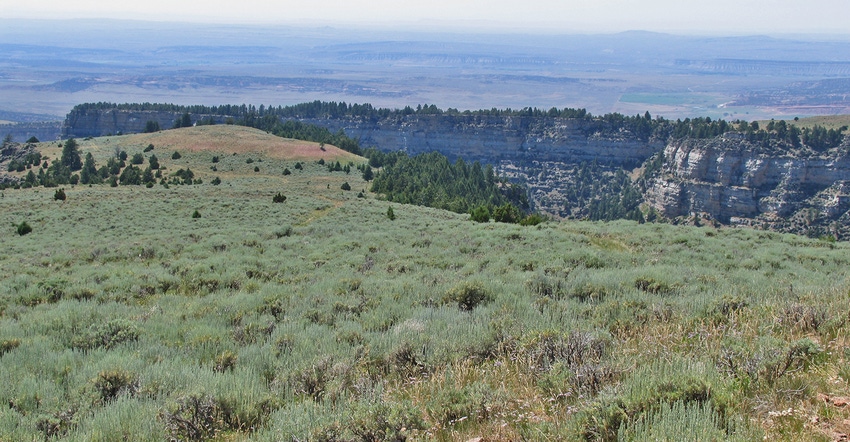January 23, 2017

Last year was a “very sluggish market” in terms of ranch and farm sales across Wyoming compared to 2014 and early 2015, says John Pearson, owner-broker of Pearson Real Estate Co. in Buffalo, Wyo.
“We saw a 10% to 15% decrease in the value of closed farm sales in 2016 compared to 2014,” Pearson says. “Though ranches held their value a little better, we still saw a 5% to 12% decrease in the value of closed ranch sales.”
A variety of factors played into this, including the big drop in livestock and crop prices, as well as the bust in oil, natural gas and coal.
The energy industry is tied to some ranch and farm sales in Wyoming, especially on the eastern side of the state, Pearson says. When oil and gas activity is booming, many landowners reap benefits from surface payments, mineral royalties and oil-servicing side businesses. This, in turn, helps some to acquire additional land.
But when the energy bust hit Wyoming in 2015, many landowners were negatively affected. On top of that were areas of drought and the uncertainty of last year’s presidential election.
Also, Pearson notes, when land prices climbed steadily from 2012 to 2014, those prices became engrained in people’s minds. And if they decided to sell, they were reluctant to lower their asking price.
“When you throw all of that together, the reason for the sluggish market becomes pretty clear. And until things change, you’re probably going to have to come down in price if you’re wanting to sell.”
Signs of optimism
But since the election, Pearson emphasizes that the tide seems to be turning.
“I hate to get into politics, but I am seeing more optimism in the agricultural and other business sectors. I think that with this new administration coming in, ranchers and farmers could see a decrease in regulations. The feeling is that they’ll be seeing an administration that is friendlier toward agriculture, energy and other business entities in the West,” he says. “The mood seems more optimistic, as do the attitudes. But who knows how all of this will play out?”
Pearson himself remains optimistic. He’s been in this business for almost 40 years, and his company remains committed to helping ranchers and farmers.
“We are very agriculture production-oriented; 75% of our sales are typically agricultural properties. Our focus is selling working farms and ranches,” he says. “The other important part of our business is selling recreational properties and smaller places.”
About the Author(s)
You May Also Like




